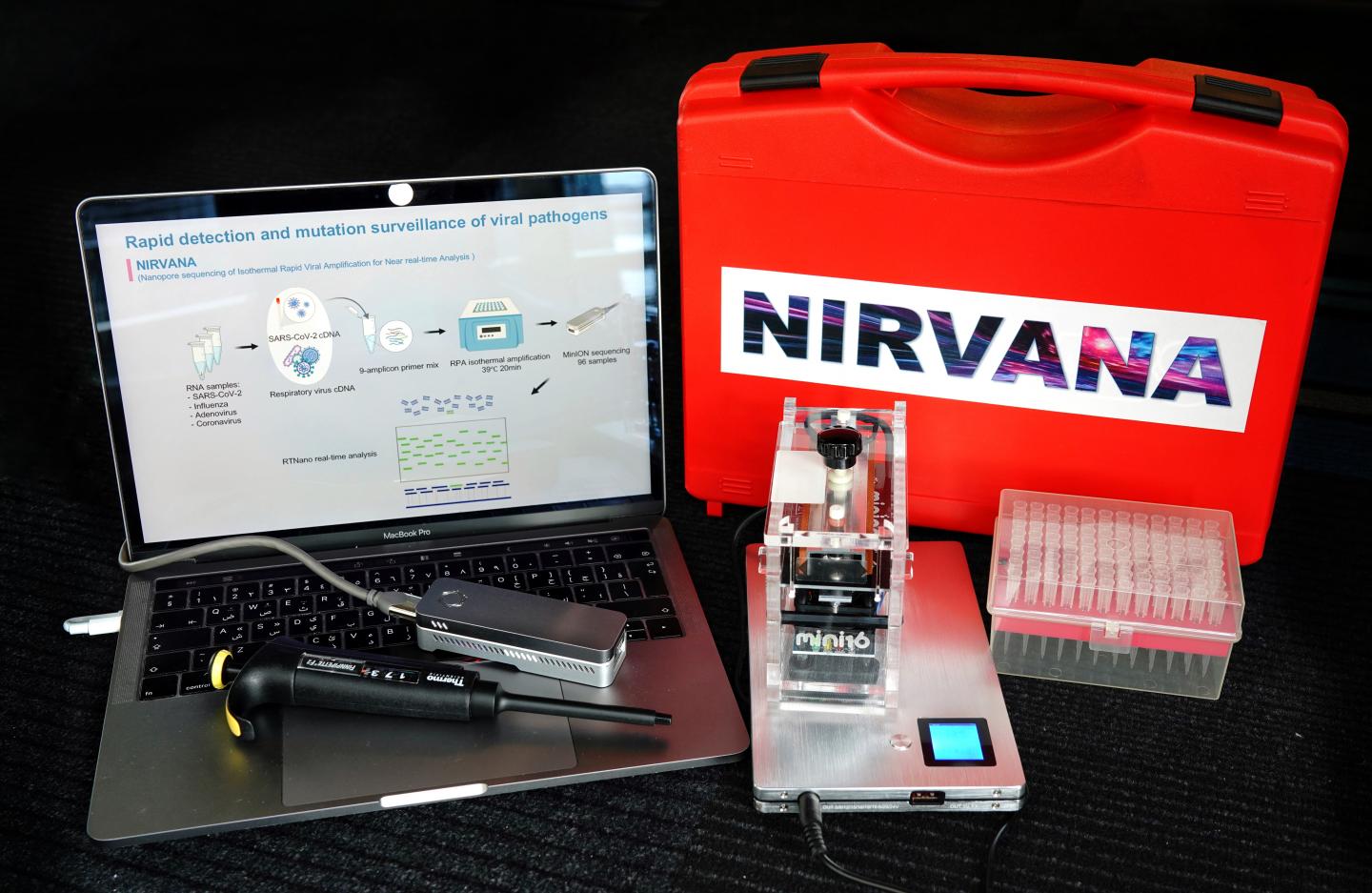
Clinicians have created a portable test — dubbed NIRVANA — capable of detecting and sequencing COVID-19, its variants, and other viruses in mere moments, according to data published in the journal Med.
Primarily, the test cuts out the need for extra diagnostics and middlemen.
“This is a virus detection and surveillance method that doesn’t require an expensive infrastructure like other approaches,” Juan Carlos Izpisua Belmonte, co-corresponding author and a professor in Salk’s Gene Expression Laboratory, said. “We can accomplish with one portable test the same thing that others are using two or three different tests, with different machines, to do.”
In addition to diagnosing COVID-19, it can also test for viruses that present similar symptoms to coronavirus and sequence the viruses themselves, providing insights into spreading mutations, which have become an increasing concern as the pandemic stretches onward. The worry is that some of these variants could mutate in ways that reduce the efficacy of treatments and vaccines. Testing helps health experts to get ahead of that.
However, most testing nowadays uses nasal swabs and a polymerase chain reaction to detect positive SARS-CoV-2 cases. According to the clinicians who worked on NIRVANA, the disadvantage is that this method of testing gives the results but no details on what caused them. That would require more PCR tests or tests put through a gene-sequencing machine — an expensive and lengthy process.
NIRVANA relies instead on isothermal recombinase polymerase amplification (RPA). RPA uses proteins to achieve the same diagnoses as PCR in just 20 minutes. It also lets scientists search for multiple genes at the same time. In fact, the method utilizes 96 samples at once. Results begin to trickle in after 15 minutes, though the final results could take up to three hours. This, coupled with real-time nanopore sequencing, could equal a faster, cheaper, and more portable option for COVID-19 testing.
In testing of 10 positive SARS-CoV-2 samples, 60 samples of unknown SARS-CoV-2 cases, and more, the test correctly identified which viruses were present in all cases. The sequencing data then let them narrow down the viral origins in positive samples.
“The design of this assay is really flexible, so it’s not just limited to the examples we’ve shown,” said Mo Li, an assistant professor of bioscience at King Abdullah University of Science and Technology in Saudi Arabia, and study co-author. “We can easily adapt it to tackle another pathogen, even something new and emergent.”




